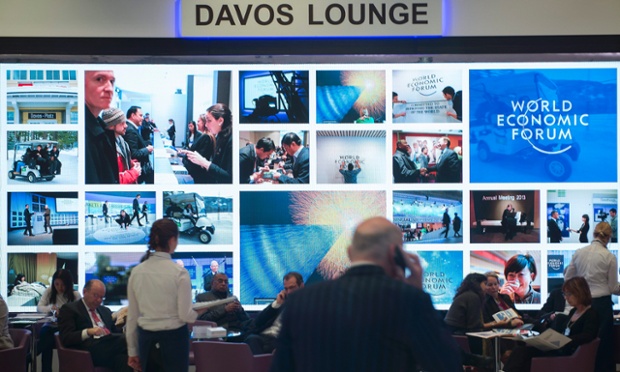"(IMF head Christine) Lagarde is outlining just how much the world has changed in recent years, and about how much more change is heading our way. She cites the 'openness, inclusiveness and accountability' that young people hold valuable - we can all learn from that she says. She also points to the huge popularity of social networks -- saying Facebook's userbase would make it the third biggest country in the world. Twitter would be fourth." (The Guardian/Liveblogging Davos)
 |
| Cynthia and Dan Lufkin via NYSD/JH |
"Few passing London tourists would ever guess that the premises of Bulgari, the upmarket jewellers in New Bond Street, had anything to do with the pope. Nor indeed the nearby headquarters of the wealthy investment bank Altium Capital, on the corner of St James's Square and Pall Mall. But these office blocks in one of London's most expensive districts are part of a surprising secret commercial property empire owned by the Vatican. Behind a disguised offshore company structure, the church's international portfolio has been built up over the years, using cash originally handed over by Mussolini in return for papal recognition of the Italian fascist regime in 1929. Since then the international value of Mussolini's nest-egg has mounted until it now exceeds £500m. In 2006, at the height of the recent property bubble, the Vatican spent £15m of those funds to buy 30 St James's Square. Other UK properties are at 168 New Bond Street and in the city of Coventry. It also owns blocks of flats in Paris and Switzerland. The surprising aspect for some will be the lengths to which the Vatican has gone to preserve secrecy about the Mussolini millions." (TheGuardian)
"Founder of Sundance Robert Redford opened Sundance at the famous Egyptian theater in Park City by saying technology and change were the main themes for 2013. Referring to the industry changes technology has bought to Hollywood, Redford said 'I think change can be divided into three sections. Since it’s inevitable, some people fight it and resist it because they’re afraid of it. Other people accept it and roll along with it…others see it in a positive way' Hollywood and Silicon Valley have traditionally had a difficult relationship with the movie and music industry trying to pass the SOPA and PIPA bills through congress last year to stop online piracy and IP theft- exploits largely enabled by the Internet. But the Internet is also enabling filmmakers to not only produce films and music more economically as the tools to do so become cheaper, it also provides a platform where filmmakers can crowd-fund their films, advertise and distribute for cheaper." (TheNextWeb)



No comments:
Post a Comment